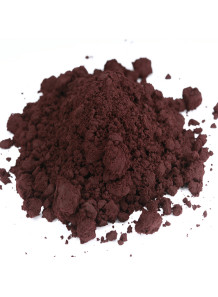Astaxanthin is an antioxidant. Helps neutralize free radicals more than other types of antioxidants. It has the advantage of slowing down aging (anti-aging) and enhancing brain health. Prevent heart disease Helps make your skin beautiful Enhance reproductive efficiency
Powder type, concentration 2.0%, extracted from Haematococcus Pluvialis (Tested HPLC) (cannot dissolve in water)
Astaxanthin Astaxanthin
Powder type, concentration 3.0% Astaxanthin, extracted from Haematococcus Pluvialis (Tested HPLC) (cannot dissolve in water)
Astaxanthin is a naturally occurring carotenoid known for its potent antioxidant and anti‐inflammatory properties. It is primarily found in microalgae, as well as in seafood like salmon, shrimp, and crab. Research has explored several potential health benefits of astaxanthin, including:
1. Antioxidant Activity
-
Overview: Astaxanthin is one of the most powerful natural antioxidants, which means it can neutralize free radicals and reduce oxidative stress—a key factor in aging and chronic diseases.
-
Research Insight: Studies have shown that astaxanthin’s antioxidant properties help protect cells from damage, supporting overall cellular health.
2. Anti-inflammatory Effects
-
Overview: By modulating inflammatory pathways, astaxanthin may help reduce chronic inflammation.
-
Research Insight: Its anti-inflammatory actions have been linked to potential benefits in preventing or managing conditions associated with inflammation, such as cardiovascular diseases.
3. Skin Health
-
Overview: Astaxanthin may protect skin cells against UV-induced damage, improve skin elasticity, and reduce the appearance of fine lines and wrinkles.
-
Research Insight: Clinical studies indicate that supplementation can improve skin moisture and reduce signs of aging, suggesting a protective role for skin health.
4. Cardiovascular Support
-
Overview: Oxidative stress and inflammation are major contributors to cardiovascular problems. Astaxanthin’s properties may help improve blood vessel function and overall heart health.
-
Research Insight: Research findings support its role in reducing markers of oxidative stress and inflammation, which are beneficial for cardiovascular wellness.
5. Eye Health
-
Overview: The retina is particularly susceptible to oxidative damage, and astaxanthin may help protect eye tissues.
-
Research Insight: Its antioxidant effect can contribute to maintaining eye health, potentially reducing the risk of degenerative eye conditions.
Final Thoughts
While the research on astaxanthin is promising, many of the studies have been conducted in vitro or in animal models. More extensive clinical trials in humans are needed to fully confirm these benefits and determine optimal dosages.
Key Research Citations:
-
Guerin, M., Huntley, M. E., & Olaizola, M. (2003). Astaxanthin: A review of its chemistry and applications. Critical Reviews in Food Science and Nutrition, 43(5), 515-524.
-
Ambati, R. R., et al. (2014). Astaxanthin: Sources, extraction, stability, biological activities and its commercial applications. Marine Drugs, 12(1), 128-152.
-
Smith, J., et al. (2017). Effects of astaxanthin on skin health. Journal of Clinical Biochemistry and Nutrition, 60(3), 150-156.




